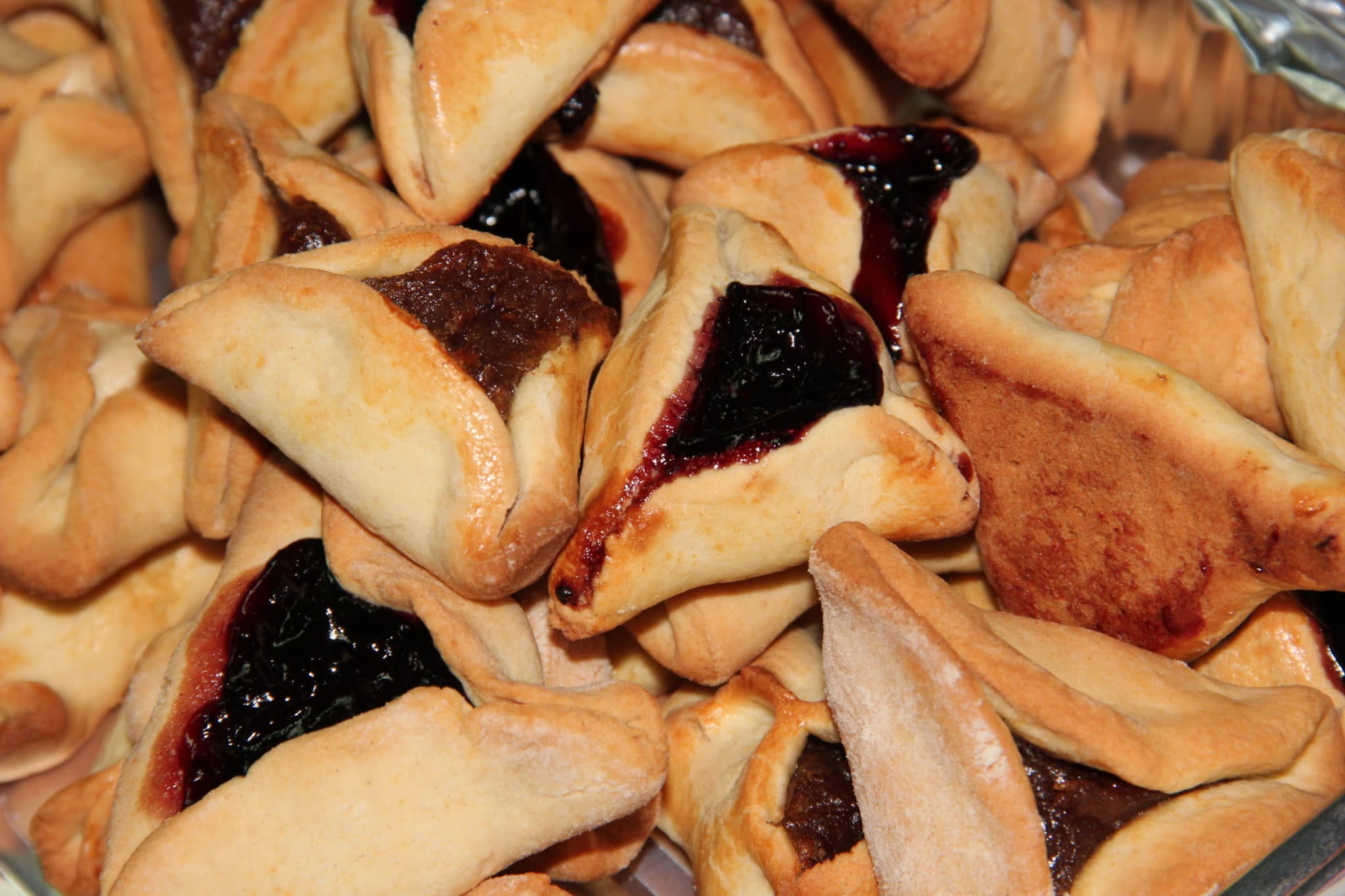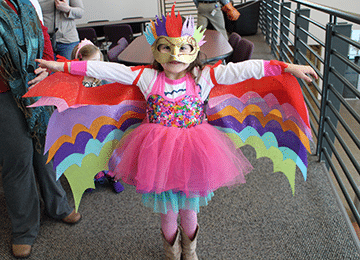Purim is a time for celebration. A time for throwing away cares and focusing on freedom.
While many Jewish holidays are often commemorating somber reasons, Purim is a victory. That makes it all the more special.
The festivities aren’t forgotten here at the J. We host a Young Professionals Hamentaschen bake, the children of the Early Childhood School join in with a festive Purim parade, and even the J staff take part with their own Hamentaschen Bake-Off.

For those that aren’t Jewish, though, all of this revelry can be confusing. Don’t worry! We’ll explain. Let’s go back. Way, way back.
During the time of the Persian Empire, there was King Ahasuerus, who took a lovely Jewish woman, Esther, to be his Queen.
Esther was very close with her uncle Mordecai. Mordecai was a good man, and had adopted Esther and raised her.
King Ahasuerus had a vizier, named Haman. Haman wanted to kill all of the Jews in the kingdom, Shushan.
Outraged when Mordecai refused to bow to him, Haman wanted Mordecai killed. Mordecai told Esther of Haman’s plans to kill all of the Jewish people in the kingdom, and convinced Esther to reveal Haman’s plot to King Ahasuerus.
During a banquet in the kingdom, Esther told Ahasuerus of Haman’s plot. Outraged, Ahasuerus allowed the Jewish people to write a decree which ordered the death of Haman.
Mordecai was subsequently raised up to be Ahasuerus’ vizier, and there was much rejoicing. Esther is now celebrated as being brave for defending her people, and Mordecai, for being true to his values.
All of this Purim celebrating may look foreign to you (or incredibly familiar!), but the excitement is often compared to the spirit of Mardi Gras.

Still wondering what everything means? Here’s the breakdown:
- People often dress up in costumes, and sometimes drink.
- Children at the J parade through the building in costume, celebrating the victory of Esther and the Jewish people.
- Hamentashcen cookies are eaten, which are made to resemble Haman’s three-cornered hat.
- Noisemakers called groggers are used to add to the celebration.
- Anytime Haman’s name is mentioned, people respond with a resounding, “Boo!!!”
- Exchanging gifts and food and drink occurs, called “mishloach manot.”
This holiday means so much to the Jewish community. As mentioned, it’s a time for celebrating, joy, and remembering the bravery Esther had to defend her people.
So, let’s not forget: everyone is capable of bravery. And sometimes, the outcomes are outstanding.

